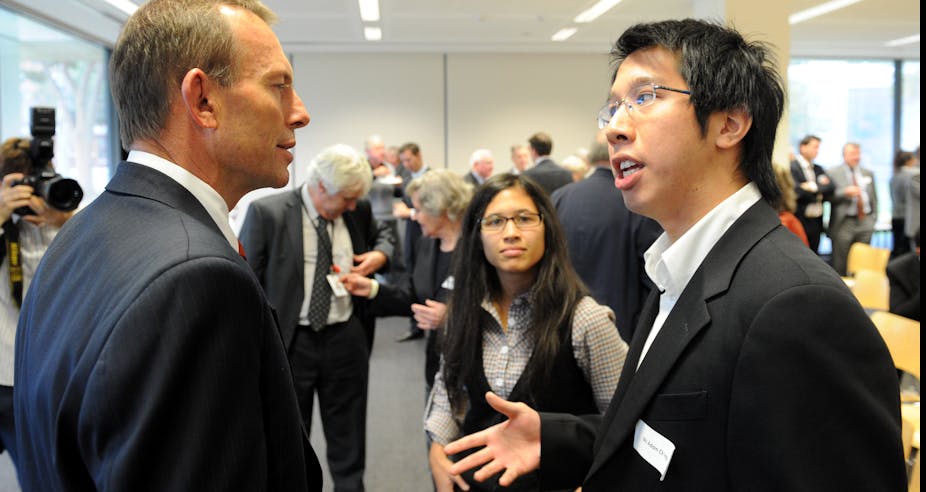Raymond Da Silva Rosa’s article, also published on The Conversation, kindly refers to my recent piece in the Australian Literary Review, which examined why generally academics exert so little impact on the shaping of public policy in this country.
In truth I’ve never written an opinion piece which received such a strong and thoughtful response.
Some respondents believed that I had failed to acknowledge instance in which academics were exerting significant influence on public policy, particularly the impact of medical research on government health strategies.
The majority agreed with my proposition but contributed a range of additional or alternative views on the cause of the “great divide” between academic research and public policy development in Australia. Many openly identified with my frustration.
Da Silva Rosa’s comments are the first to imply my call was for university researchers to get political. Of course, academics should be free to be as politically active as they like on any issue whether or not they have particular research expertise. I’d like to think that a broad diversity of views prevailed on our campuses and were expressed.
This, however, was not the object of my argument.
Certainly I was not advocating “hand-to-hand combat of political engagement” in “politically charged debate”, still less the politicisation of research findings. What I do believe is that academics, when they choose, should be encouraged to engage with and influence public policy.
Of course, universities should provide the opportunity for scientists to undertake blue-sky research, the practical consequence of which are uncertain, perhaps even unimportant in an instrumentalist sense.
Similarly, universities should offer a welcoming environment for academics in the humanities and social sciences to explore aspects of the human condition and spirit that have no immediate relevance to contemporary society.
More cautiously I accept that universities should provide vocational training, so long as the practical curriculum is contextualised within a broader learning framework. My point, quite simply, is that publicly-funded, policy-relevant research should contribute more to Australian political decision-making.
Da Silva Rosa is correct that knowledge is tentative (and empirical findings always subject to interpretation). That does not mean that academic research cannot provide a strong evidence base for policy decisions.
Nor do I agree with characterising the application of research to public policy as a “distraction” to serious inquiry. Some academics may entirely appropriately have no interest in the public policy relevance of their work.
Others, I know, are not attracted by the inevitable compromises involved in the negotiation of policy outcomes. My perspective is that the “shades of grey … with conclusions hedged by subtle and numerous qualification”, which Da Silva Rosa extols as the virtue of academia, are, in fact, vital to the wicked problems of economic and social policy in which beneficial outcomes and adverse consequences nearly always have to be balanced.
My intention was not to belittle the contribution which academics already make. Many contribute in positive ways to the development and delivery of public policy. A number have become expert media commentators.
Others, more proactively, seek to present their research in a form and manner in which it can contribute to public debate.
This, generally, is the province of university centres of excellence in all their diverse manifestations. Individual academics may undertake government funded consultancy projects. All of this is worthwhile.
The problem, as I see it, is at the crucial next stage at which public value is added – working within the democratic political system (with governments, public services or advocacy organisations) to directly influence policy decisions.
My regret is that for a variety of institutional and cultural reasons – some genuine, some spurious – academic research is too often moulded into ‘evidence-based policy’ by third parties. I’d like to see academics more directly involved.
If this represents “getting political” then I’m all for it.
Read Raymond Da Silva Rosa’s article here. What’s your point of view? Leave your comments below.

